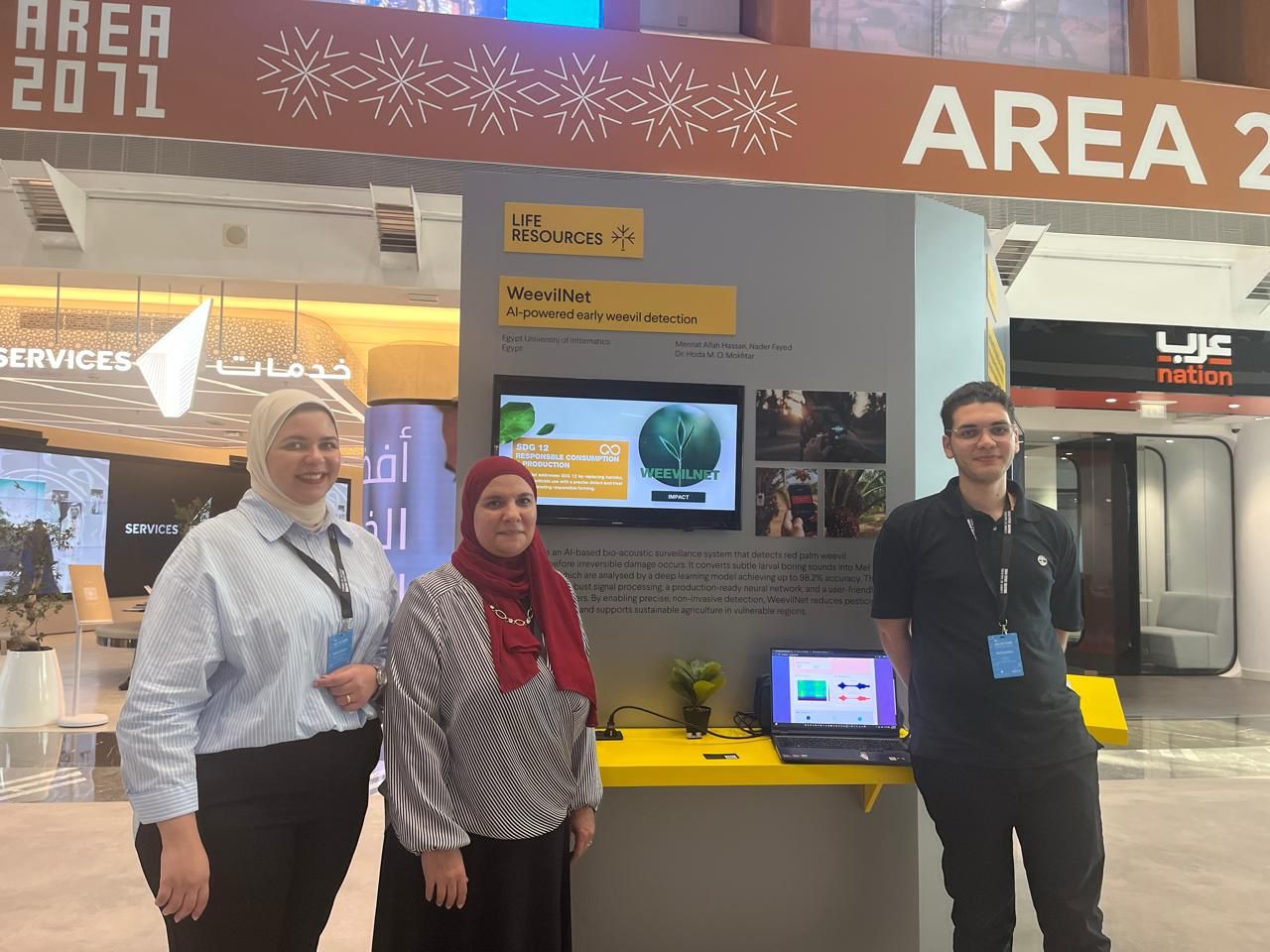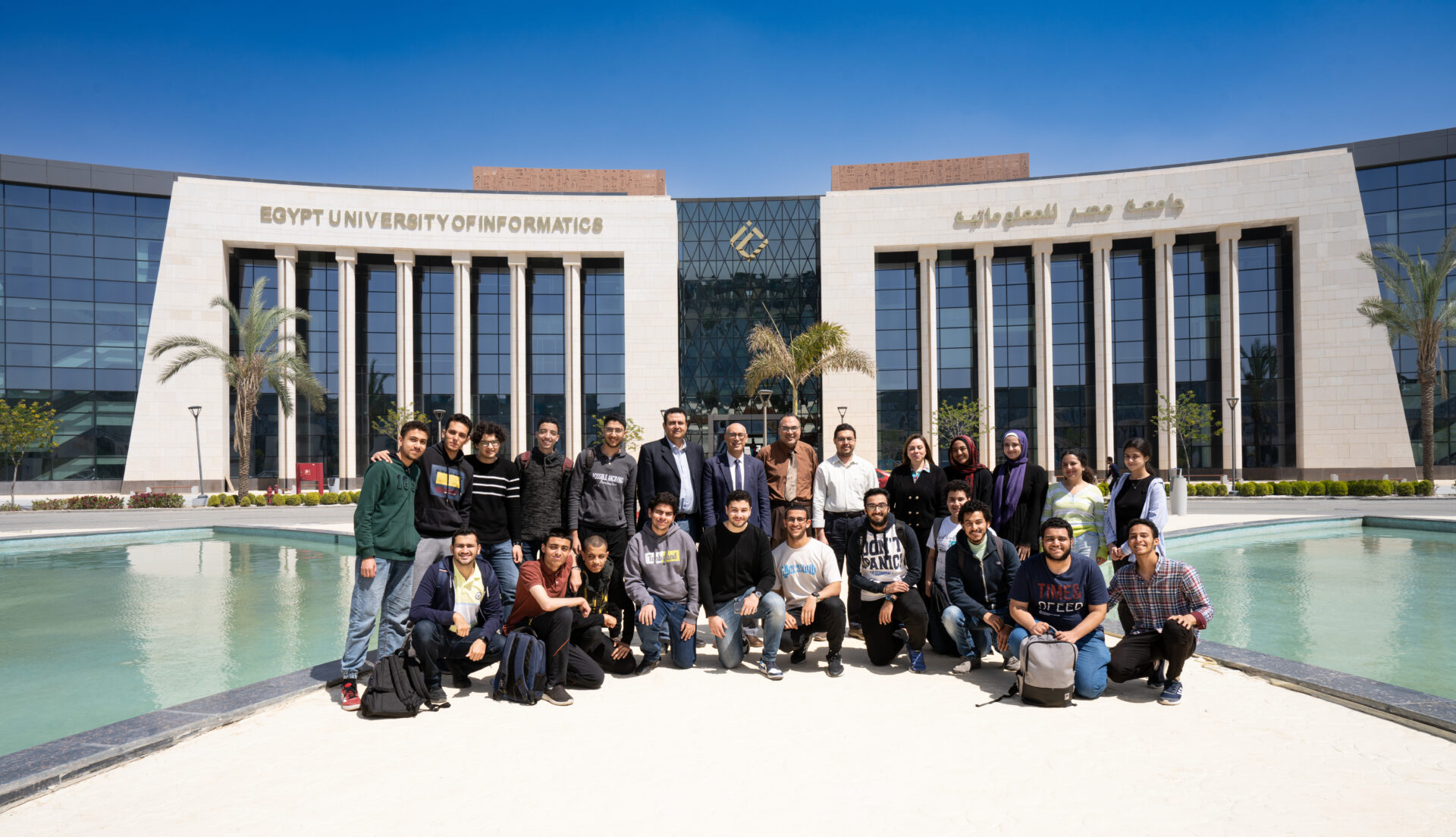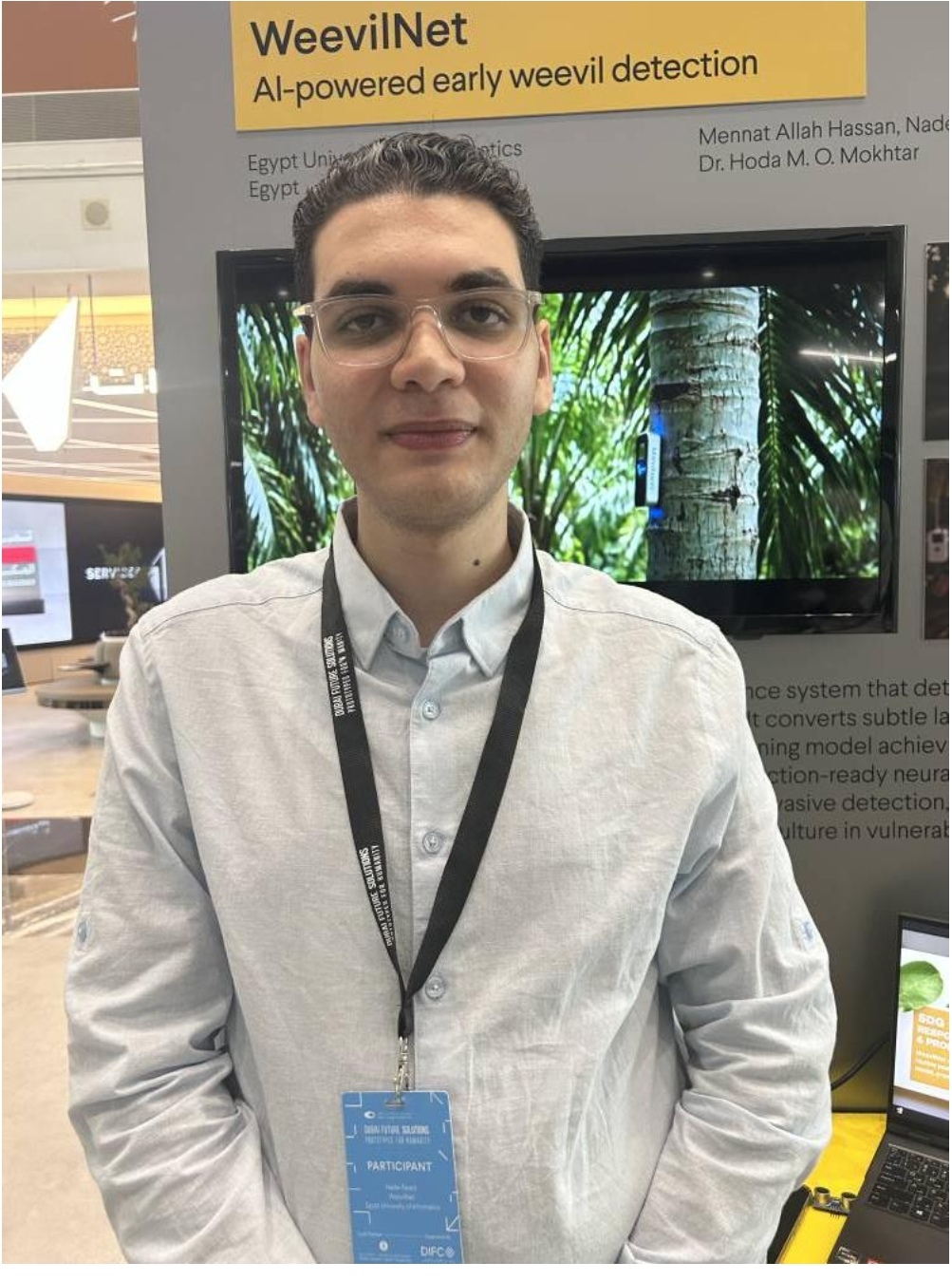
WeevilNet: EUI Research Project Reaches Global Finals in Dubai

A groundbreaking research project developed at Egypt University of Informatics has advanced to the finals of Dubai’s “Solutions and Innovations for the Future” 2025 competition. It stands among the top 100 projects chosen from 15,000 entries submitted by students from 1,200 universities representing 120 countries.
Prof. Hoda Mokhtar, Dean of the Faculty of Computing and Information Sciences at EUI and supervisor of the research project—named “WeevilNet”—confirmed that the project aims to protect the global date-palm industry, whose market value is estimated at 16 billion USD and expected to reach 18.7 billion USD by 2030. The Arab region contributes significantly to global production, with Egypt ranking first worldwide with an annual output exceeding 1.87 million tons (19.33% of global production), valued at nearly 3 billion USD. It is followed by Saudi Arabia with 1.64 million tons (17.01%), and Algeria with 1.32 million tons (13.71%), according to FAO data. This production supports numerous industries that employ a large segment of the workforce across the Arab world.
She added that the research team from the Faculty of Computing and Information Sciences consists of Assistant Lecturer Mennatallah Hassan and second-year student Nader Fayed. The project targets early detection of the red palm weevil and determining the degree of infestation, enabling timely intervention to prevent its spread. Instead of burning an entire infected palm field—as is currently the case—only the infected tree would be removed. This preserves palm plantations and saves Egypt approximately 200 million USD in annual losses caused by the pest.
She explained that the research project uses artificial intelligence—specifically deep learning—to detect early signs of infestation using sound-sensing devices attached to the trunk of the palm tree. The deep-learning model analyzes these vibrations and determines the level of early infection, supporting sustainable agriculture and helping small, vulnerable farmers who cannot withstand the losses caused by this pest. This contributes to stabilizing their income and returns from date production.
She added that the project’s selection to participate in this major international competition in Dubai is due to several reasons, most importantly its societal impact, its service to a large population in the region and globally, and its innovative use of advanced technologies. This reflects the importance of linking universities and research centers to real community challenges, especially those with economic and social impacts on vulnerable groups.
Assistant Lecturer Mennatallah Hassan noted that using deep-learning models to identify the acoustic patterns of palm weevils is a new addition, as most current solutions rely on visual monitoring or thermal cameras—methods that detect infestation too late, often after it has spread throughout the field.
For his part, student Nader Fayed stated that “WeevilNet” is a bio-acoustic AI-powered monitoring system that detects red palm weevil infestations before irreversible damage occurs. It converts parasitic-drilling sounds into spectrograms, which are then analyzed by a deep learning network with an accuracy of 98.2%.



